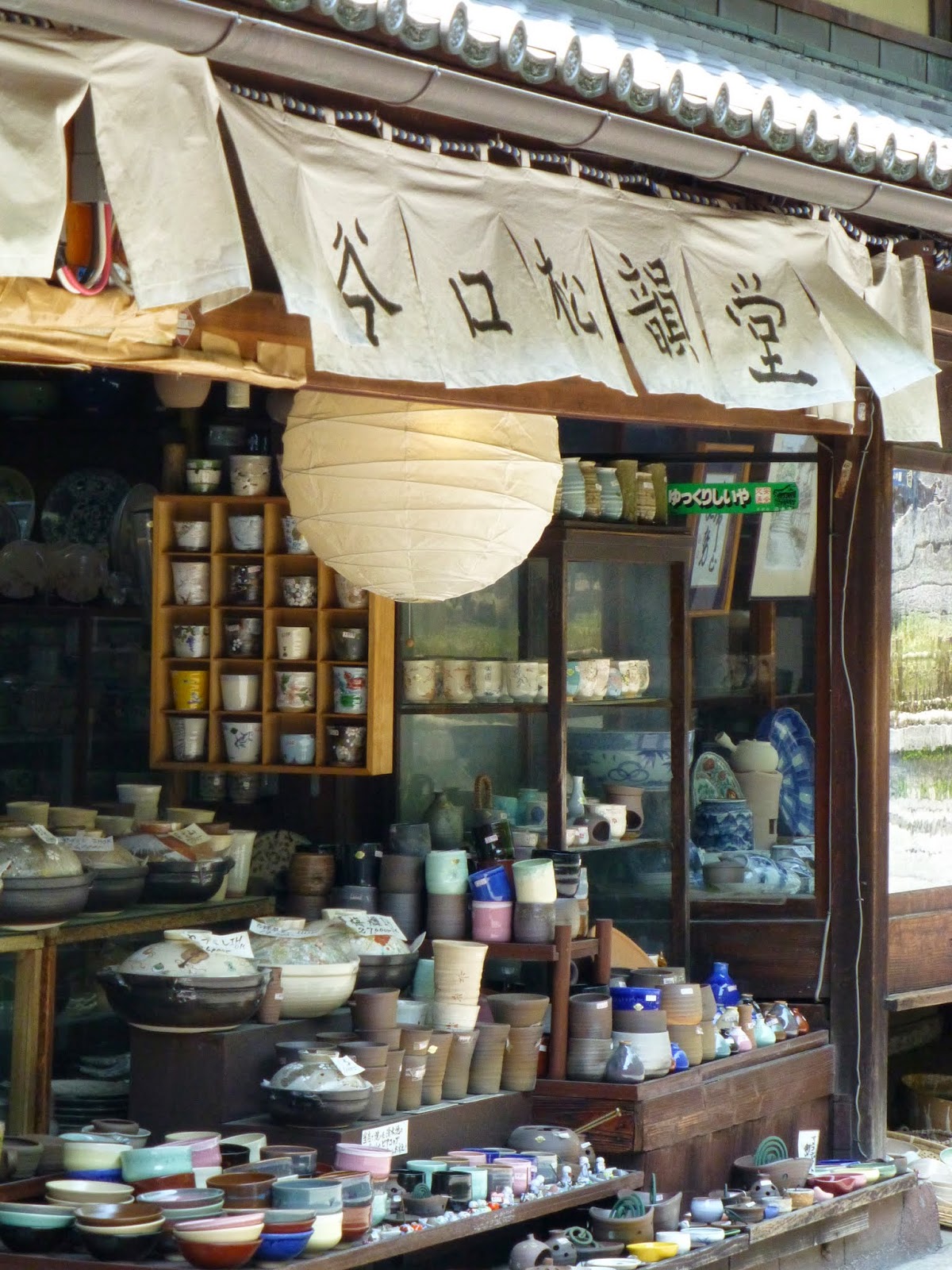Higashiyama literally means East Mountain, and yes, this area is located on the eastern edge of Kyoto, in the foothills. It's an area where the streets are narrow pedestrian ways with stairs, old style merchants, and classic architecture.
The shops have changed over time, I'm sure. But with possibly a couple exceptions, you won't find goofy trinkets here. The shops sell classic Japanese goods, including the waving maneki-neko cats which are actually meant to be good luck charms.
Kiyomizu-yaki pottery is famous. So is pottery from pretty much everywhere else in Japan. If you're looking for traditional Japanese goods, this is probably the best place to find them, with the exception of the Kyoto Handicrafts Center.
While I don't have many photos of food, there are tea shops and cafes scattered along the way. Of course, you can also find shops with packaged sweets to take back to your friends. It is in this area that I tried and bought yatsuhashi, a cinnamon flavored snack that can be served raw or baked. In recent times, they have also added westernized flavors like chocolate. If you like cinnamon, you'll like yatsuhashi. I preferred the baked style, but many shops will allow you to sample the different styles and flavors to help you make your purchase.
Most tourists stick with the main route full of shops and restaurants. But you should go down a few of the alleys as well.
You'll see traditional style Japanese housing, narrow winding lanes, and several people out for a stroll in their yukata or kimono.
That's not a real maiko girl. This couple purchased a package that includes the costumes, makeup and hair, and photography too, I'm sure. It's quite a popular service, though pricey.
The houses sometimes have visible gardens outside their walls, and the view changes frequently as you turn corner after corner.
There are a few temples (namely Kodai-ji) and shrines along the path, but this is more of an experience of seeing an old Japanese neighborhood on the preserved historic streets.
The best way to see Higashiyama is to start on the southern end at Kiyomizu-dera, because from the temple it's a mostly downhill walk. You can follow the main path to Maruyama Park, or branch off and explore some side streets as well. Depending on how much browsing in stores and exploring you do, the two-kilometer walk can take one to two hours or more. Generally, shops open around 9:00 or 10:00 and close around 17:00 or 18:00.
From Maruyama Park, you can head downhill into Yasaka Shrine and the Gion district or continue north to the larger Chionin and Shorenin temples. I managed to make a full day in this area, including Gion and the temples north to Higashiyama Station, but it involved a lot of walking. If you want a really good hike, start at Kiyomizu-dera and walk past Shorenin to Heian Shrine, Nanzen-ji, the Philosopher Path, and finally arrive at Ginkakuji. This is over 3.5 miles (about 6 km), and takes over an hour to walk without stopping anywhere.
















No comments:
Post a Comment